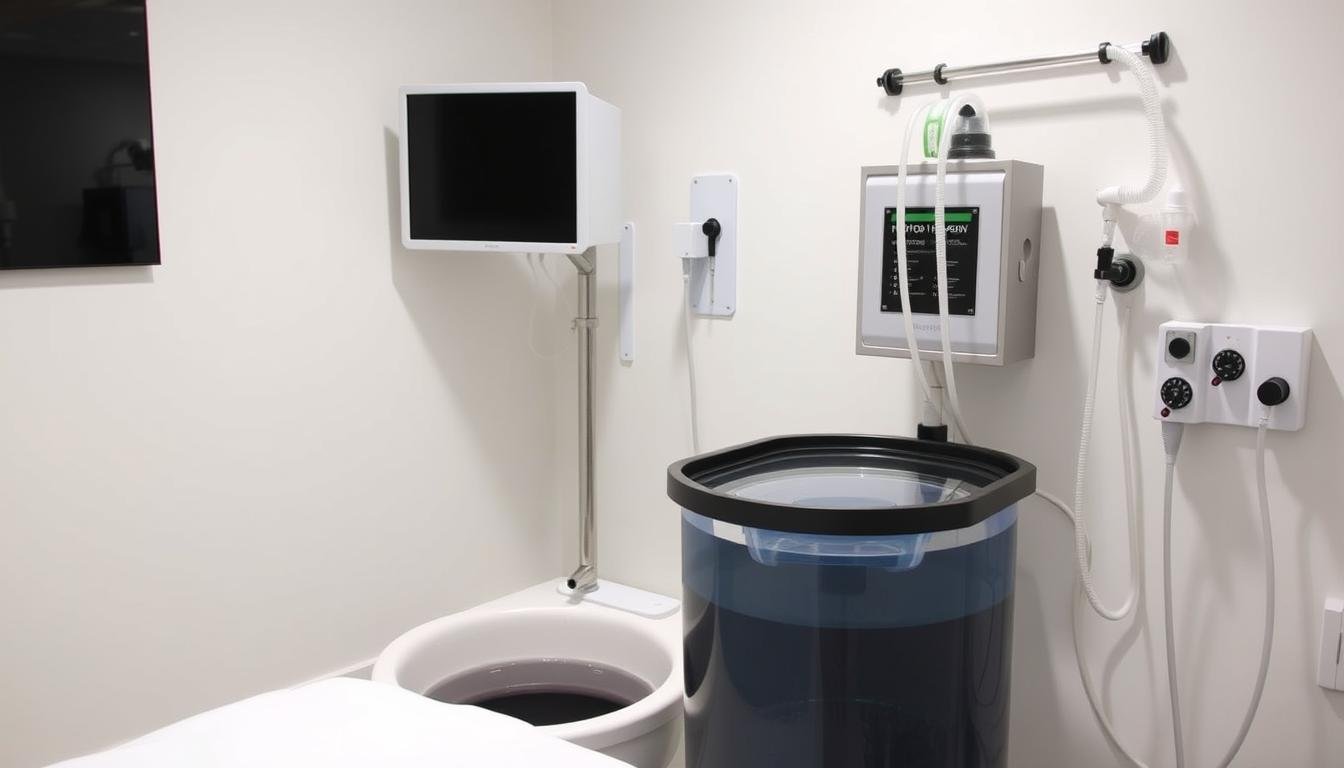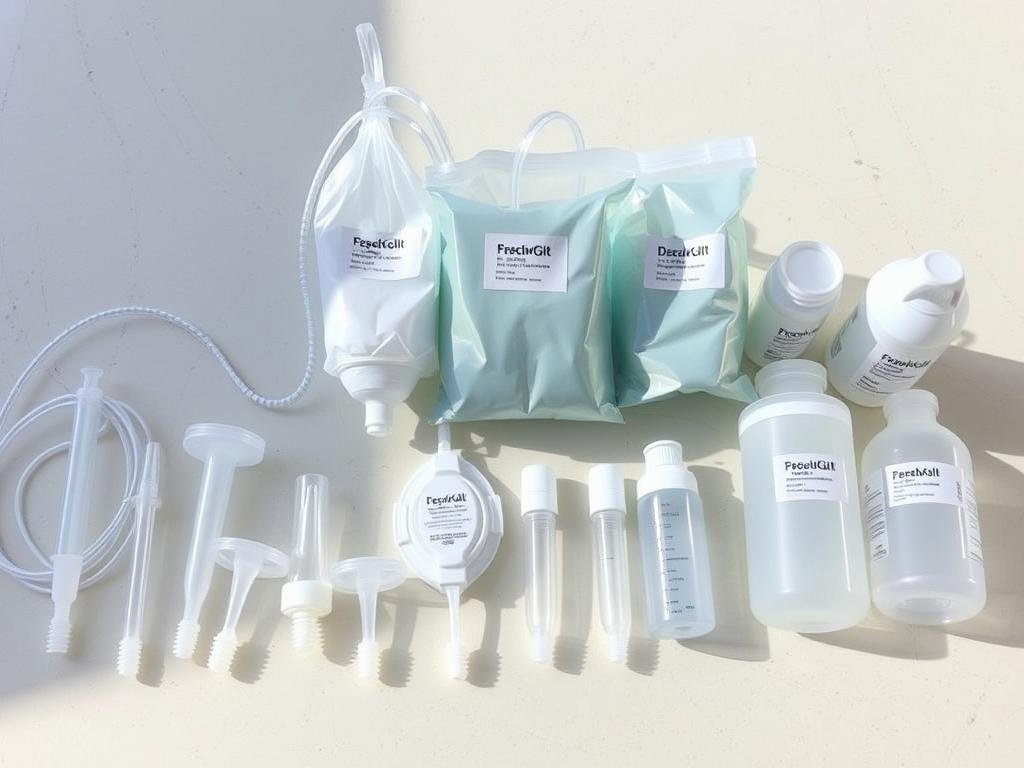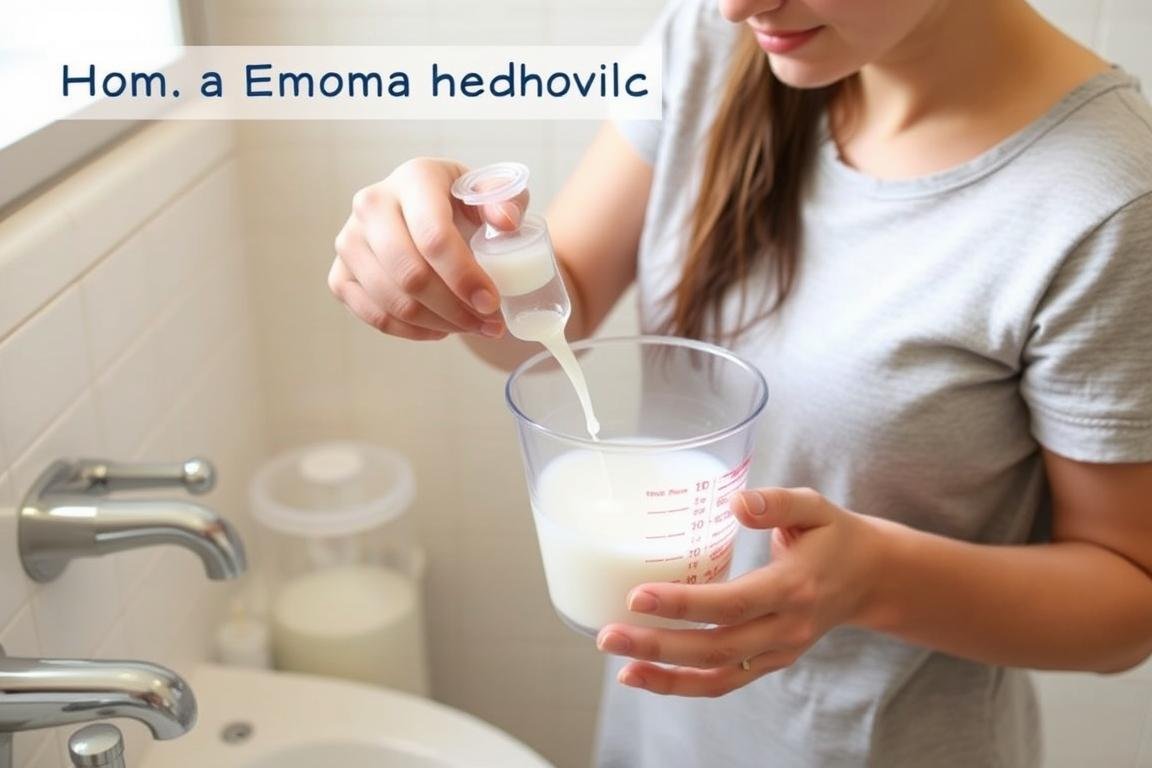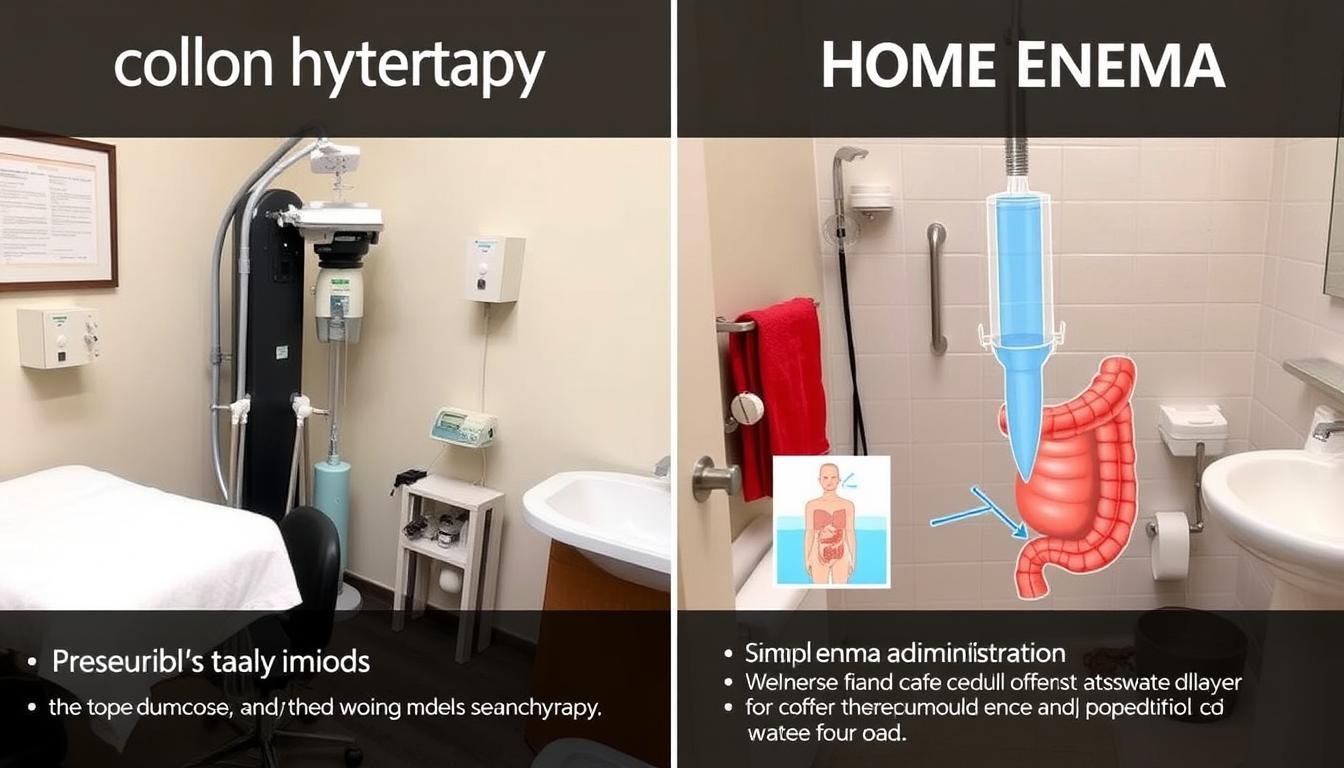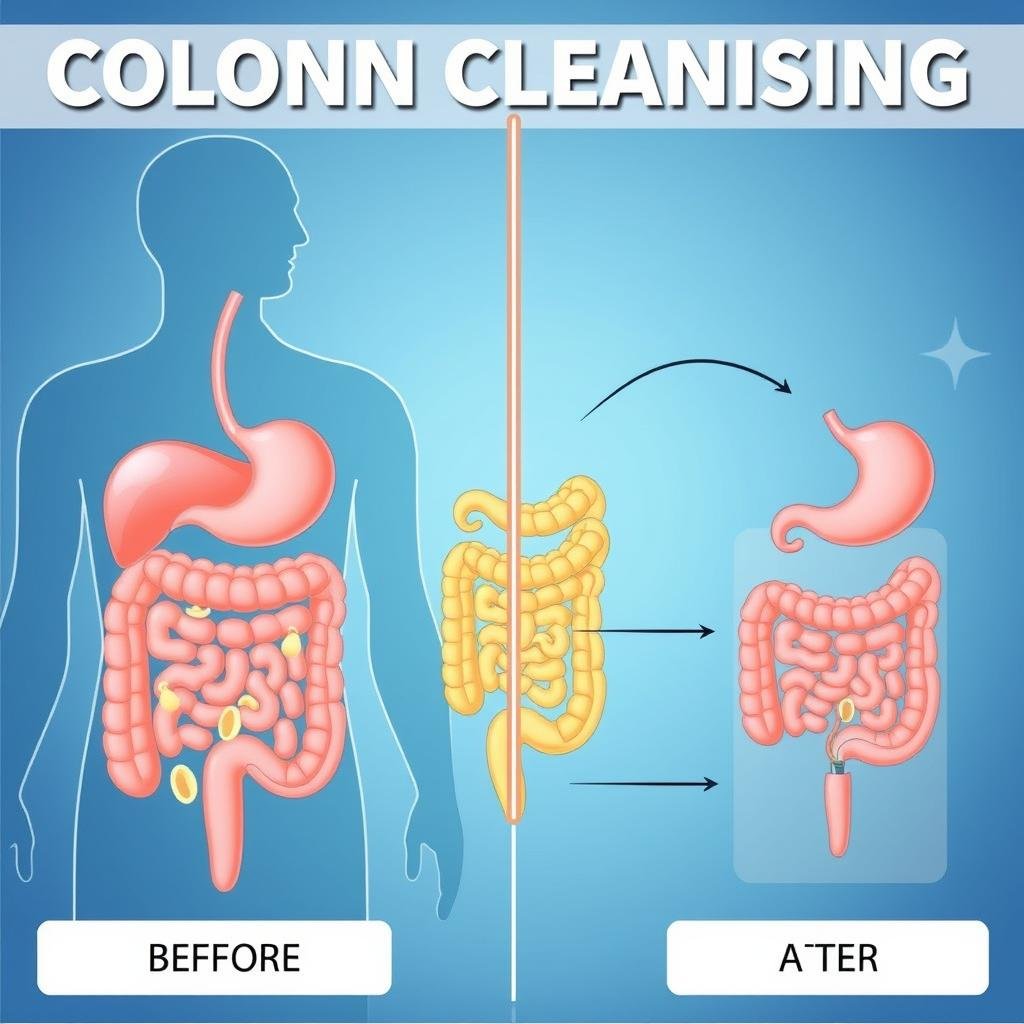Gut cleansing has gained popularity as a way to potentially improve digestive health and overall wellbeing. Two common methods—colon hydrotherapy and enemas—offer different approaches to cleansing the intestinal tract. Understanding the differences between these procedures can help you make an informed decision about which might be more suitable for your specific needs.What Is Colon Hydrotherapy?
Colon hydrotherapy, also known as colonic irrigation or colonics, is a procedure that involves flushing the colon with water to remove waste material. Unlike home remedies, professional colon hydrotherapy is typically performed by a trained practitioner using specialized equipment.
The Colon Hydrotherapy Procedure
During a colon hydrotherapy session, you’ll lie on a table while a small, disposable tube is inserted into your rectum. Filtered water is then gently pumped into the colon, loosening and removing waste material. The entire procedure generally takes about 45 minutes and uses approximately 16 gallons of water.
Some practitioners may add substances to the water, such as probiotics, enzymes, herbs, or coffee, claiming these provide additional benefits. However, there’s limited scientific evidence supporting these additions.
Claimed Benefits of Colon Hydrotherapy
Proponents of colon hydrotherapy suggest various potential benefits, including:
- Removal of accumulated waste and toxins
- Improved digestive function
- บรรเทาอาการท้องผูก
- Reduced bloating and gas
- Enhanced energy levels
- Support for beneficial gut bacteria
Potential Risks and Side Effects
While many people undergo colon hydrotherapy without complications, the procedure isn’t without risks. Potential side effects may include:
- Abdominal cramping and discomfort
- Nausea or vomiting
- Dehydration and electrolyte imbalance
- Bowel perforation (in rare cases)
- Infection from non-sterile equipment
- Disruption of normal gut bacteria
Understanding Enemas
Enemas are a more accessible and typically less intensive form of colon cleansing. They involve introducing liquid into the rectum and lower colon to stimulate bowel movements and remove waste from the lower portion of the large intestine.
Types of Enemas
There are several types of enemas, each with different purposes:
- Water enemas: Use plain water to soften stool and stimulate evacuation
- Saline enemas: Contain salt solution to draw water into the bowel
- Mineral oil enemas: Help lubricate the intestines for easier passage of hardened stool
- Coffee enemas: Claimed to stimulate bile flow and detoxification (limited scientific support)
- Probiotic enemas: Introduce beneficial bacteria directly to the colon
How Enemas Work
Enemas work primarily through two mechanisms:
- The liquid softens hardened stool, making it easier to pass
- The volume of fluid creates pressure that stimulates the natural urge to evacuate the bowels
Unlike colon hydrotherapy, which aims to cleanse the entire colon, enemas typically affect only the rectum and lower portion of the large intestine. The procedure is generally shorter, taking about 5-15 minutes to complete.
Key Differences Between Colon Hydrotherapy and Enemas
| คุณสมบัติ | ยาเสพติดลำไส้ใหญ่ | Enemas |
| Area cleansed | Entire colon | Lower colon and rectum only |
| Water volume | Up to 16 gallons | 1-2 quarts |
| ระยะเวลา | 30-60 minutes | 5-15 minutes |
| Administration | Usually by a professional | Often self-administered |
| อุปกรณ์ | Specialized machine | Simple kit |
| ค่าใช้จ่าย | $45-$150 per session | $5-$30 for kit |
| Risk level | Moderate | Low to moderate |
Which Is Better for Gut Cleansing?
Determining which method is “better” depends on your specific goals, health status, and personal preferences. Here’s a comparison to help guide your decision:
Colon Hydrotherapy Advantages
- More thorough cleansing of the entire colon
- Professional administration reduces risk of improper technique
- May provide more significant relief for severe constipation
- Controlled water temperature and pressure
- Professional guidance throughout the procedure
Colon Hydrotherapy Disadvantages
- Higher cost per session
- Requires appointment and travel to practitioner
- More invasive procedure
- Higher risk of complications
- May disrupt beneficial gut bacteria more significantly
Enema Advantages
- More affordable and accessible
- Can be performed at home
- Less invasive
- Shorter procedure time
- Lower risk of serious complications
Enema Disadvantages
- Cleanses only the lower portion of the colon
- Risk of improper self-administration
- May not provide relief for issues affecting the upper colon
- Limited control over water temperature and pressure
- No professional guidance during the procedure
Pros and Cons of Colon Hydrotherapy
Let’s examine the benefits and risks of colon hydrotherapy in more detail:
Potential Benefits
- Constipation relief: May provide temporary relief from chronic constipation
- Reduced bloating: Some users report decreased abdominal bloating after sessions
- Preparation for medical procedures: Sometimes used to prepare for colonoscopies
- Potential IBS symptom improvement: Limited research suggests possible benefits for some IBS symptoms
- Improved energy: Some users report feeling more energetic
- Mental clarity: Anecdotal reports of improved mental focus
- Reduced gas: May temporarily reduce intestinal gas
- Professional administration: Performed by trained practitioners
Potential Risks
Important: The scientific evidence supporting many claimed benefits of colon hydrotherapy is limited. Medical organizations generally do not recommend colon cleansing for general health purposes due to potential risks and lack of proven benefits.
- Electrolyte imbalance: Can disrupt essential minerals in the body
- Dehydration: Excessive fluid loss may occur
- Bowel perforation: Rare but serious risk of intestinal wall damage
- Infection: Possible if equipment is not properly sterilized
- Disruption of gut microbiome: May flush out beneficial bacteria
- Discomfort: Cramping, bloating, and nausea can occur
- Dependency: Some may develop reliance on cleansing
- Contraindications: Not suitable for people with certain health conditions
Expert Recommendations
“There isn’t much scientific evidence to support colon cleansing for general health. The body’s digestive system and bowel naturally eliminate waste material and bacteria. The colon absorbs water and sodium to maintain the body’s fluid and electrolyte balance.”
— Harvard Medical School
Most gastroenterologists and medical organizations do not recommend colon hydrotherapy or enemas for general health maintenance. Instead, they suggest these healthier alternatives for promoting colon health:
Dietary Approaches
- Increase fiber intake (25-30g daily)
- Consume plenty of fruits and vegetables
- Stay well-hydrated (8-10 glasses of water daily)
- Include probiotic foods like yogurt and kefir
Lifestyle Changes
- Regular physical activity
- Stress management techniques
- Establish regular bathroom routines
- Avoid prolonged sitting
Medical Approaches
- Regular health screenings
- Consult healthcare providers about digestive concerns
- Consider over-the-counter remedies for occasional constipation
- Explore prescription options for chronic issues
Medical Guidance: If you’re considering colon hydrotherapy or enemas for specific health concerns, consult with a healthcare provider first, especially if you have existing health conditions such as inflammatory bowel disease, hemorrhoids, kidney disease, or heart problems.
Considering Gut Cleansing Options?
Before trying any gut cleansing method, it’s important to consult with a healthcare professional who can provide personalized advice based on your specific health needs and medical history.
Schedule a Consultation
Frequently Asked Questions About Colon Hydrotherapy and Enemas
Is colon hydrotherapy covered by insurance?
Most health insurance plans do not cover colon hydrotherapy as it’s considered an alternative therapy without sufficient scientific evidence supporting its medical necessity. You should expect to pay out-of-pocket for these services, with costs typically ranging from to 0 per session depending on your location and the practitioner.
How often should colon hydrotherapy be performed?
There are no medically established guidelines for the frequency of colon hydrotherapy sessions. Some practitioners recommend initial series of 3-6 sessions followed by maintenance sessions every few months. However, medical professionals generally do not recommend regular colon cleansing for healthy individuals. Always consult with a healthcare provider before starting any cleansing regimen.
Are there people who should avoid colon hydrotherapy and enemas?
Yes, several conditions make these procedures potentially dangerous. You should avoid colon cleansing if you have:
- Inflammatory bowel diseases (Crohn’s disease, ulcerative colitis)
- Recent colon surgery or history of bowel perforation
- Severe hemorrhoids or rectal/anal fissures
- Heart or kidney disease
- Severe anemia
- Gastrointestinal cancers
- Pregnancy
What should I expect during my first colon hydrotherapy session?
During your first session, you can expect:
- A consultation about your health history and goals
- Instructions to change into a gown and lie on a treatment table
- Insertion of a small, disposable tube into your rectum
- Gentle introduction of filtered water into your colon
- Periodic release of water and waste through the tube
- The therapist may massage your abdomen to help release waste
- The entire procedure typically lasts 30-60 minutes
Can I perform colon cleansing at home safely?
While enemas can be performed at home with proper education and care, full colon hydrotherapy should only be performed by trained professionals with proper equipment. Home enema kits are available over-the-counter, but it’s important to follow instructions carefully and start with simple solutions like plain water or saline. Consult with a healthcare provider before attempting any home colon cleansing.
Is there scientific evidence supporting colon hydrotherapy benefits?
Scientific evidence supporting colon hydrotherapy for general health is limited. Most medical organizations do not recommend it for detoxification or general wellness. A small 2016 study published in Techniques in Coloproctology suggested possible benefits for some IBS symptoms, but researchers noted the need for larger, more rigorous studies. The historical theory of “autointoxication” that drove colon cleansing popularity has been largely discredited by modern medical science.
Conclusion
When comparing colon hydrotherapy and enemas, there’s no definitive “better” option that applies to everyone. Each method has its own set of potential benefits, risks, and considerations. While colon hydrotherapy offers a more thorough cleansing under professional guidance, enemas provide a more accessible, less invasive alternative for addressing lower colon issues.
Most importantly, the scientific evidence supporting regular colon cleansing for general health remains limited. Medical experts generally recommend focusing on proven approaches to digestive health, including a fiber-rich diet, adequate hydration, regular exercise, and appropriate medical care for specific digestive concerns.
If you’re experiencing persistent digestive issues, consult with a healthcare provider who can help determine the underlying cause and recommend appropriate evidence-based treatments tailored to your specific needs.

